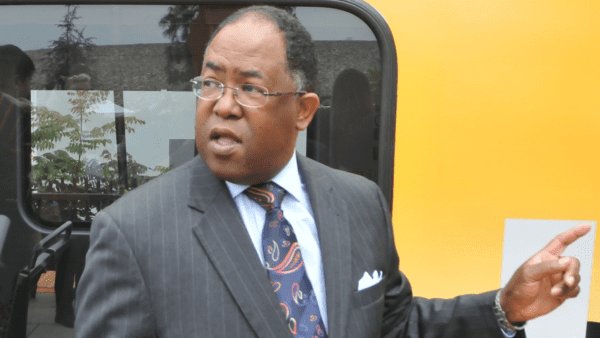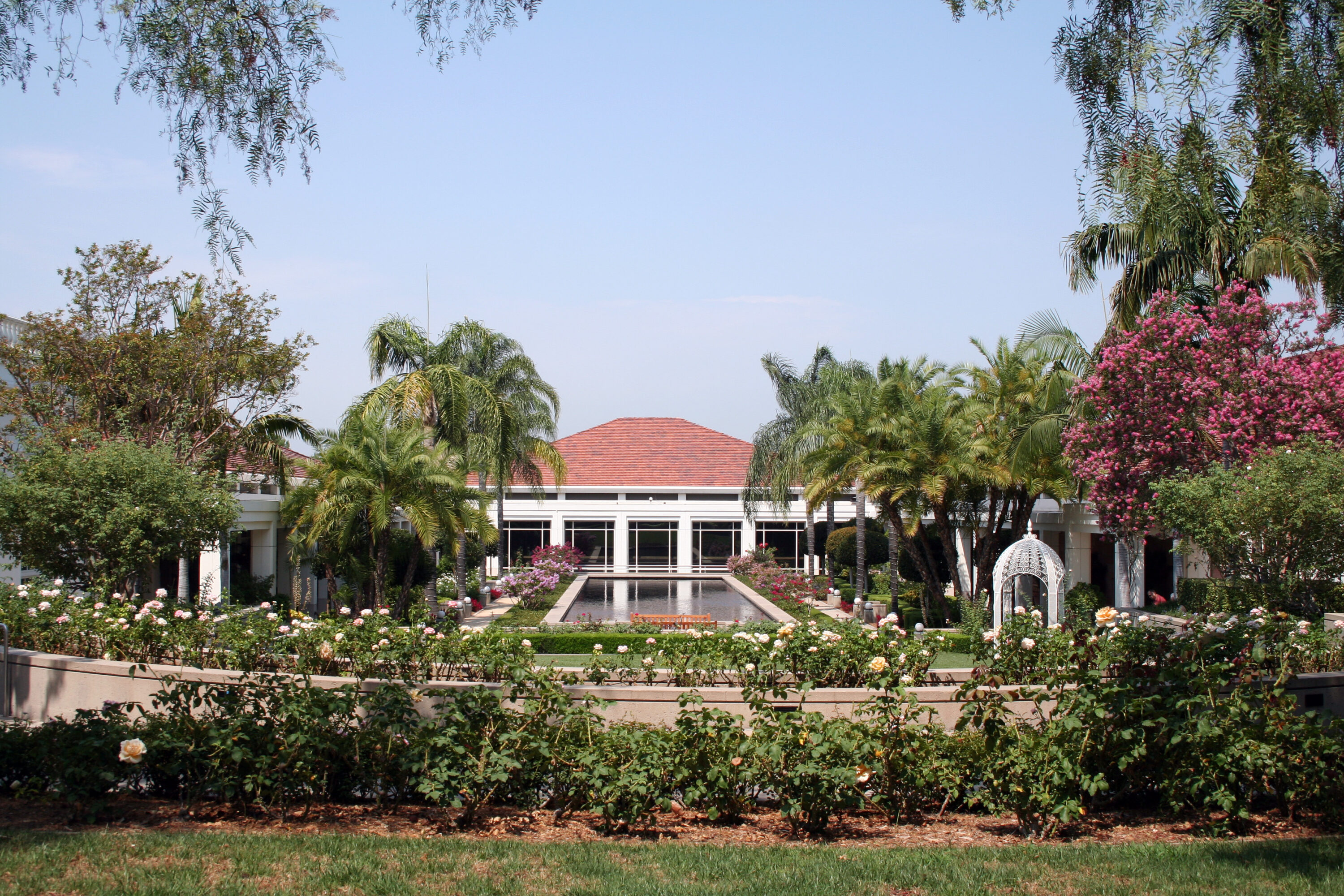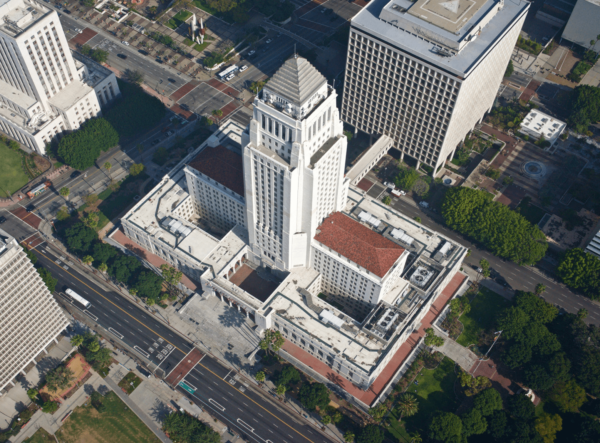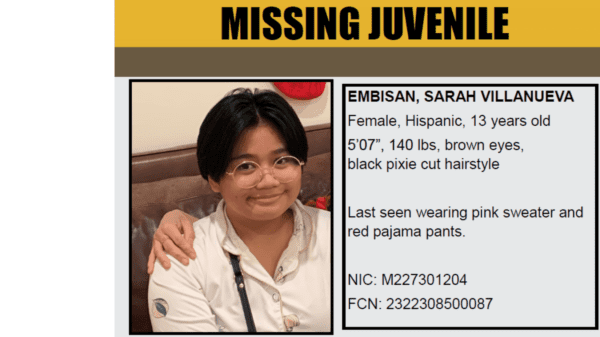By Fred Shuster
Suspended Los Angeles City Councilman Mark Ridley-Thomas was convicted Thursday of federal bribery and conspiracy charges, along with mail and wire fraud, stemming from his time serving on the LA County Board of Supervisors.
Ridley-Thomas showed no reaction as the verdict was read late Thursday morning in a packed downtown Los Angeles courtroom. He was convicted on single counts of bribery and conspiracy, along with one count of honest services mail fraud and four counts of honest services wire fraud. Jurors, who reached their verdict on their fifth day of deliberations, acquitted the Southland political giant of 12 other fraud counts.
The charges stemmed from what prosecutors called a quid pro quo arrangement between Ridley-Thomas and a former head of the USC School of Social Work, with the politician accused of steering county contracts toward the university in exchange for benefits provided to Ridley-Thomas’ son, former Assemblyman Sebastian Ridley-Thomas.
U.S. District Judge Dale Fischer set sentencing for Aug. 14. Ridley-Thomas has been suspended from the LA City Council since the indictment was announced.
Ridley-Thomas, 68, of South LA, has vehemently denied any wrongdoing. He did not testify in his own defense, but his attorneys argued throughout the trial that nothing he did amounted to a crime.
Prosecutors alleged that the longtime local politician, while serving as a county supervisor, “put his hand out” and accepted perks from USC to benefit his son, Sebastian. Federal prosecutors based their case on a long string of emails and letters to bolster allegations that Ridley-Thomas and the former dean of the USC School of Social Work, Marilyn Flynn, had a quid pro quo arrangement during 2017 and 2018 in which the then-dean arranged for Sebastian’s admission to USC, a full-tuition scholarship and a paid professorship in exchange for his father’s support for county proposals that would ostensibly shore up the school’s shoddy financial picture and save Flynn’s job.
However, defense attorney Daralyn Durie countered that nothing Ridley-Thomas did was illegal, and a series of defense witnesses contended that the “paper trail” was not what it seemed.
Although the government argued that Ridley-Thomas accepted help for Sebastian in exchange for his support of USC contracts, including a Telehealth program, that would’ve helped Flynn’s school financially, Durie said the then-supervisor had already been in support of the proposals, so he could not have been bribed.
As for the contention that Ridley-Thomas participated in a secret scheme whereby Flynn funneled $100,000 “seed money” from the politician’s campaign fund through the school to the Policy, Research & Practice Initiative, a nonprofit operated by his son who had recently stepped down from the California Assembly, Durie argued that nothing the politician did was illegal.
Ridley-Thomas’ support of the contracts that prosecutors claim would’ve helped remedy the troubled financial situation at Flynn’s school, had nothing to do with his son’s ambitions at USC, the defense attorney told jurors in her closing argument.
Durie also alleged that one of the contracts amounted to less than $500,000 over five years — an amount so low it would not have helped remedy the financial problems at Flynn’s school.
Assistant U.S. Attorney Michael Morse told the panel, however, that Ridley-Thomas made the alleged exchange to benefit his son, who had resigned from the Assembly amid an internal sexual harassment probe that was about to go public at the peak of the #MeToo movement.
However, defense witnesses maintained that Sebastian suffered from a series of significant health issues that caused him to resign and look for other work.
At the conclusion of her two-hour closing argument Thursday, Durie asked the jury to acquit the defendant, and “return this man to his home and his work and his community.”
According to the indictment, Sebastian became a professor of social work and public policy at USC — despite lacking a graduate degree — thanks to his father’s allegedly unlawful dealings. He was later terminated over questions about his original appointment and concerns by the university over the $100,000 donation. He also obtained a full-tuition scholarship and graduate school admission, court papers show.
Flynn, 84, of Los Feliz, pleaded guilty in September to one count of bribery, admitting that she agreed to disguise and funnel $100,000 from the then-supervisor to USC, then to United Ways of California, which ultimately passed the money on to Sebastian’s nonprofit. The longtime dean of the USC School of Social Work, who departed in 2018, is scheduled to be sentenced June 26.
Jurors were not told that Flynn pleaded guilty in the case, and her plea agreement did not require her to testify at the Ridley-Thomas trial.
Ridley-Thomas is a giant figure in local politics, previously serving on the LA City Council from 1991-2002, then serving in the state Assembly and state Senate before he was elected to the powerful County Board of Supervisors in 2008, serving until 2020, when he returned to the City Council.
He has a doctorate in social ethics from USC and spent 10 years as executive director of the Southern Christian Leadership Conference of Greater Los Angeles, beginning in 1981.
He was suspended from the City Council following the October 2021 federal indictment that also named Flynn as co-defendant.







